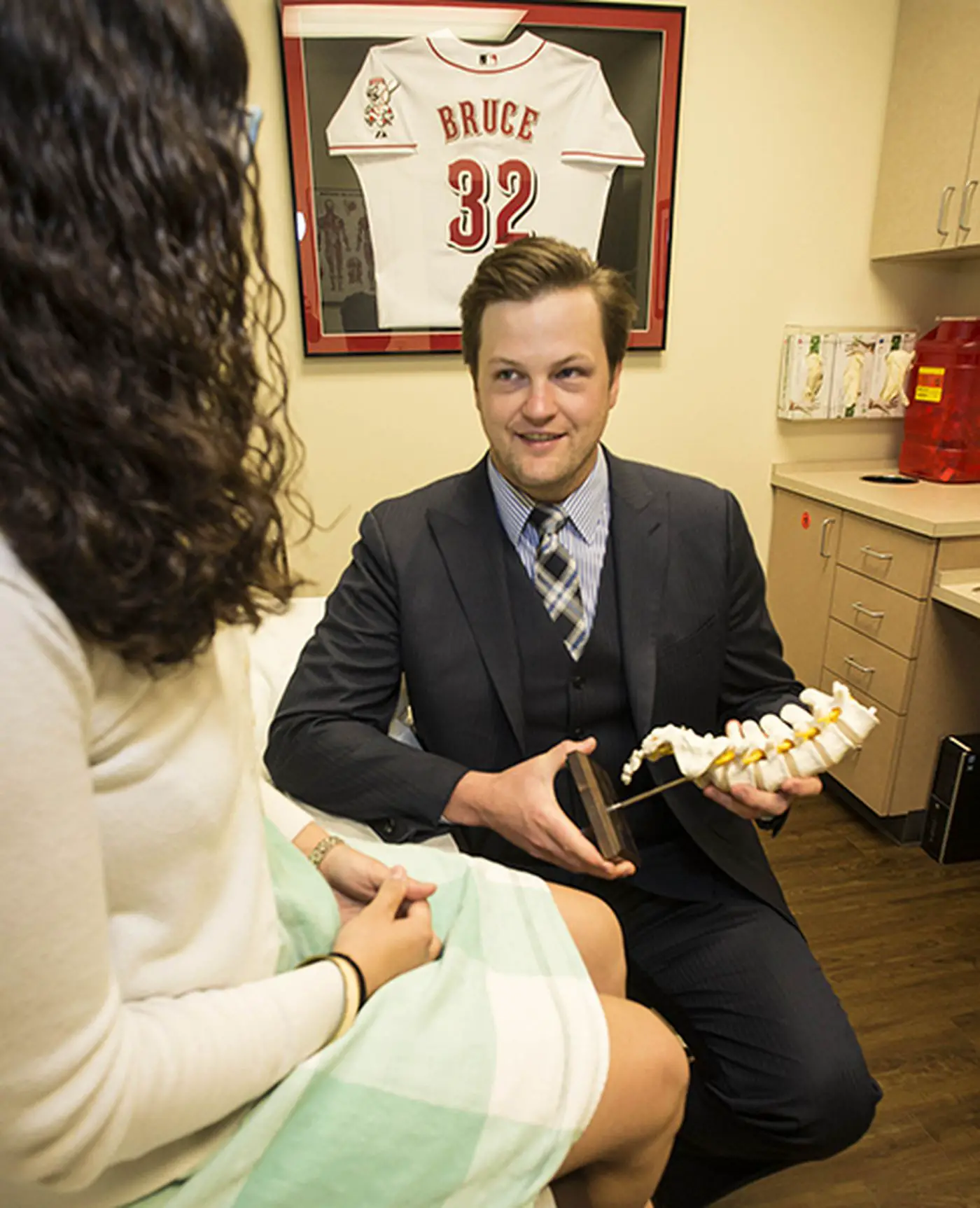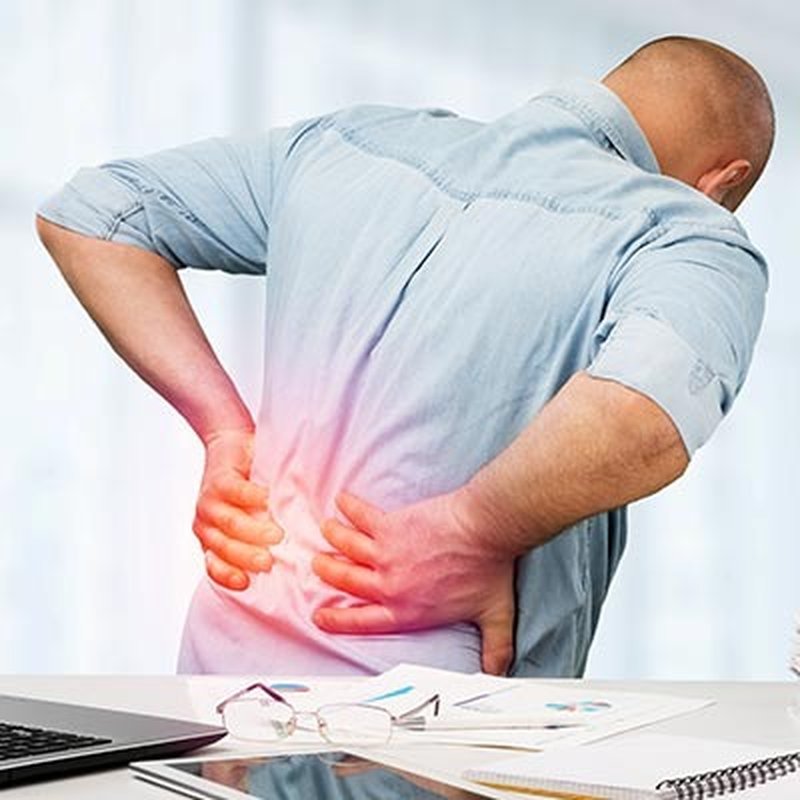Should You See An Orthopedic Specialist For Arthritis
Seeing an orthopedic specialist may be a good idea when your symptoms become uncomfortable or affect your ability to do your regular activities.
After carefully reviewing your symptoms, medical history, and concerns, an orthopedic specialist will perform a physical examination and arrange for diagnostic testing to determine the cause of your pain and stiffness. Even patients with a current arthritis diagnosis can benefit from seeing an orthopedic specialist for symptom and disease management and treatments.
Do Orthopedic Doctors Treat Muscle Pain
Orthopedic doctors can help reduce pain This includes muscles, nerves, bones, joints, tendons, ligaments, cartilage, and other connective tissue. There are many musculoskeletal conditions and injuries that can cause pain, and often, orthopedic specialists can help reduce or eliminate pain.
Do neurologists treat muscle pain?
Neurologists are specialists who treat diseases of the brain and spinal cord, peripheral nerves and muscles. Neurological conditions include epilepsy, stroke, multiple sclerosis and Parkinsons disease.
Learn More About What Orthopedic Doctors Do And The Treatments They Implement
The American Academy of Orthopaedic Surgeons estimates that musculoskeletal disease impacts 126.6 million U.S. adults ages 18 years or older every year. AAOS researchers found these illnesses are comparable to the total percentage of Americans living with chronic heart and lung conditions.
If you suffer from an aching back, sore muscles, or painful joints, you should visit an orthopedic physician. These doctors can diagnose underlying health conditions causing your pain, and develop a comprehensive treatment plan to alleviate it. Here is what you can expect when during your first visit with an orthopedic specialist.
Recommended Reading: Can Voltaren Gel Be Used For Lower Back Pain
Should You See A Rheumatologist For Osteoarthritis
7 Signs That You Need Specialist Care
Osteoarthritis can often be managed under the care of a general physician. However, if your condition is severe, you might need to see a specialist.
A rheumatologist is a physician who specializes in treating inflammatory diseases and joint diseases, which include osteoarthritis as well as rheumatoid arthritis and related disease.
Whether or not you need a specialist depends on the stage of your disease and how typical your case may be. The following insights should help you decide.
Reasons To See A Rheumatologist

Almost everyone has some pain in the muscles or joints from time to time. But if it lasts days or more, it might be a good idea to visit a rheumatologist.
It can be hard to diagnose some rheumatic diseases in the early stages. But some of these conditions respond best to early care, so itâs better to see a specialist sooner rather than later. Without treatment, they may lead to joint damage.
Itâs also good to see a rheumatologist if you notice symptoms of autoimmune or rheumatic disease and you have a family history of these conditions.
Recommended Reading: What Can Get Rid Of Back Pain
What Does A Neurologist Do
Neurology is a medical specialty that more precisely diagnoses and treats problems of the central nervous system composed of the brain, spinal cord, spinal column, and peripheral nerves. A neurologist focuses on treating conditions affecting the entire central nervous system.
A neurologists day consists largely of diagnosing and treating brain and spinal cord injuries. Once this portion of a patients care plan has ended, a neurologist will refer the patient to another doctor to follow up on their progress and rehabilitation.
What Are The Risk Factors For Developing Low Back Pain
Anyone can have back pain. Factors that can increase the risk for low back pain include:
Age: The first attack of low back pain typically occurs between the ages of 30 and 50, and back pain becomes more common with advancing age. Loss of bone strength from osteoporosis can lead to fractures, and at the same time, muscle elasticity and tone decrease. The intervertebral discs begin to lose fluid and flexibility with age, which decreases their ability to cushion the vertebrae. The risk of spinal stenosis also increases with age.
Fitness level: Back pain is more common among people who are not physically fit. Weak back and abdominal muscles may not properly support the spine. Weekend warriorspeople who go out and exercise a lot after being inactive all weekare more likely to suffer painful back injuries than people who make moderate physical activity a daily habit. Studies show that low-impact aerobic exercise can help maintain the integrity of intervertebral discs.
Weight gain: Being overweight, obese, or quickly gaining significant amounts of weight can put stress on the back and lead to low back pain.
Genetics: Some causes of back pain, such as ankylosing spondylitis , have a genetic component.
Smoking: It can restrict blood flow and oxygen to the discs, causing them to degenerate faster.
Backpack overload in children: A backpack overloaded with schoolbooks and supplies can strain the back and cause muscle fatigue.
Don’t Miss: How To Get Rid Of Lower Back Hip Pain
Amy Dr Crosby Patient
Amy began her journey at Elite after being diagnosed with a bulging disc. Her condition was limiting her active lifestyle and preventing her from doing normal day-to-day activities.
Dr. Crosby has helped Amy get back to where she wants to be while also listening to her needs. She states, I dont like taking meds, so he has worked with me to offer treatment to ease the pain, but doesnt rely solely on medication.
Amy has been able to return to almost all activities again.
An Orthopedic Doctor Performs Surgery
There are many reasons your orthopedist might recommend surgery: to repair a torn ligament or tendon, to set a broken bone, to remove a herniated disc thats pressing against a spinal nerve and causing pain. Today, not all surgeries are long, invasive and require a hospitalization. In cases of a severely torn ligament or tendon, you may be a candidate for minimally invasive arthroscopy. In cases of a herniated spinal disc or spinal stenosis, you may be a candidate for minimally invasive spine surgery to relieve pressure in the spine. Minimally invasive procedures require smaller incisions and cause less soft tissue damage. Many minimally invasive procedures can be performed on an outpatient basis.
Your orthopedic doctor will always walk you through your options and the pros and cons of each so that you can make an informed decision about your treatment.
Read Also: How To Ease A Lower Back Pain
Other Possible Causes Of Hip Pain
As mentioned, hip pain can also be caused by a variety of other conditions, some of which are more common than others. According to WebMD, one common cause of hip pain is hip osteoarthritis. This is a degenerative condition that causes the cartilage in the hip joint to break down, leading to pain and stiffness. Osteoarthritis is more common in older adults and can be caused by wear and tear on the joint over time.
Bursitis is another possible cause of hip pain that’s caused by inflammation of the bursa, a fluid-filled sac that cushions the joint. Bursitis can be caused by overuse or injury, commonly affecting the hip joint .
Other possible causes of hip pain include sciatica and snapping hip syndrome. Sciatica is a condition that causes pain, tingling, and numbness in the leg and hip due to compression of the sciatic nerve . On the other hand, snapping hip syndrome is caused by the snapping of tendons or other tissue over the hip joint. It can cause a snapping or popping sensation, as well as pain and weakness in the hip, per WebMD.
Outlook On Pinched Nerves
The good news is that most people who suffer from a pinched nerve will recover well with basic treatment and proper care by an orthopedic surgeon near you. However, there are some cases where recurrences may happen in the future and the pinched nerve will need to be treated again. It is important to visit an orthopedic surgeon near you to understand the root cause of your pain and prevent future instances. At AICA Orthopedics, our doctors work with physical therapists and chiropractors to provide holistic care that addresses the root cause of your pain. Our goal is for you to return to full mobility and health, no matter the injury.
Don’t Miss: How To Ease Lower Back Pain While Sleeping
Orthopedic Doctors Can Treat Injuries And May Be Able To Help Prevent Injuries
Broken bones, compression fractures, stress fractures, dislocations, muscle injury, and tendon tears or ruptures are common reasons people visit orthopedic doctors. Athletes will often work with orthopedists to help prevent future injury and optimize performance.
For example, some athletes are at risk for shoulder dislocation. And once theyve experienced one dislocation, theyre at higher risk for future dislocations. Therapy may be able to help prevent future dislocations.
Orthopedic surgeons can repair broken bones and injuries to muscles and tendons, among other things and help improve function and reduce or eliminate pain. They can also work in conjunction with other specialists such as therapists, rehabilitation doctors and pain management specialists to optimize treatment. This will lead to improved function and mobility, reduced pain, and improved quality of life.
Some of the injuries that can be addressed with physical therapy, non-surgical treatments and sometimes surgery include:
- fractures, such as broken hip, broken wrist, kneecap, compression fracture of the vertebrae and others
- tendon injuries such as Achilles tendon rupture or ACL rupture
- labral tear of the shoulder or the hip
- rotator cuff tear which is a common cause of shoulder pain
No matter what your injury involves, theres a good chance an orthopedic specialist can help.
Who To See For My Back Pain

If youre still wondering if you should see a doctor for back pain, the short answer is yes. Going to the doctor for your back pain can help you find relief so you can enjoy life once again. At the Desert Institute for Spine Care , you can rest assured our doctors and staff will take good care of you.
At DISC, we believe every patient deserves compassionate, personalized care. We developed Personalized Pain Diagnostics to identify the pain generator and most accurate diagnosis. With PPM we can personalize and tailor the right treatment or surgical option for our patients. We begin by asking questions and listening carefully to your experience. We then investigate your symptoms further through an examination and imaging tests.
Once we develop ideas about your pain, we will discuss them honestly and clearly with you and invite you to ask questions. We want to ensure you feel comfortable and can make an informed decision about your treatment.
When youre ready, well apply the latest technology to treat your pain and help you restore your lifestyle.
To learn more about our innovative treatments for back pain or schedule an appointment, please fill out our contact form or call one of our Phoenix-area locations today.
Recommended Reading: How Do They Burn Nerves In Lower Back
Answers To Common Back Pain Questions
More than eight in 10 people will experience upper, mid, or low back pain at some point in their lives. Low back pain is the most common back pain. In most cases, the pain goes away over time. If your back pain is severe or does not improve, you may need medical care. Here are answers to some common questions about back pain and tips on when to seek help.
When To See A Doctor For Sciatica
Sciatica is a common cause of back and leg pain. The condition is caused by inflammation or injury of the sciatic nerve, which runs from the lower back, down the back of the legs, and into the feet. Common sciatica symptoms include pain, weakness or numbness in the lower back, buttock, leg or foot. The pain may be dull and deep or sharp and shooting it may also come and go with movement. Sciatica can often be managed at home, but severe sciatica requires medical treatment.
You May Like: Which Food Is Not Good For Back Pain
General Treatments Used By Orthopedic Doctors
Orthopedic physicians develop treatment plans based on a patients medical issues. They can prescribe the following regimens to improve recovery.
- Surgery: Some patients require surgical intervention to correct an orthopedic issue and repair damaged areas.
- Medication: Doctors may prescribe pain relievers, muscle relaxants, and other medications to reduce pain and speed your recovery.
- Physical Therapy: These manual treatments can reduce tenderness, stiffness, and pain. The exercises help patients heal and recover the use of injured areas.
- Exercise: This physical regimen strengthens muscles and prevent patients from re-injuring themselves.
- Massage/Acupuncture: Physicians may recommend these treatments to reduce pain and facilitate healing.
Need Help?
Stretches To Prevent Back Pain
Taking a small amount of time every day to stretch you back can have a massive impact on your spine health.
An exercise program and physical therapy can help to relieve pain from conditions like spinal stenosis. Here are 5 stretches you can do from your desk chair at work or at home to help prevent and relieve back pain:
Chest Opener Stretch
Photo by TheStandingDesk on Unsplash
According to Merriam Webster, the definition of ergonomics is an applied science concerned with designing and arranging things people use so that the people and things interact the most efficiently and safely.
Working at an office job daily can have a negative impact on your back health and can lead to many spine conditions. Luckily, implementing ergonomics into your routine can help!
Recommended Reading: Can Kidney Inflammation Cause Back Pain
You May Like: Does Sleep Number Bed Help Back Pain
Orthopedic Doctors Can Help You Determine Whether You Need Surgery
There are some common misconceptions about orthopedic surgery that wed like to address. For example, some people may shy away from surgery, thinking that treatment wont help, and they should just handle the pain and dysfunction on their own. Others think their pain is a normal part of aging they must simply accept, and they believe that surgery should be reserved for the obvious injuries. Theres also a common misconception that surgeons will always recommend surgery even if its not necessary.
At Beaumont, we are dedicated to providing every patient with the right treatment at the right time. Surgery is recommended only when nonsurgical treatment measures have failed to provide relief or in circumstance when nonsurgical options are unlikely to be successful. Care is specific to each patient and our goal is always to improve our patients quality of life.
Getting Started With A Neurosurgeonare You In The Right Place
You wouldn’t normally make an appointment to see a neurosurgeon for treatment of your back or neck pain. You should first see your primary care doctor, who will take a medical history, examine you, and possibly order diagnostic tests.
Most of the time, back or neck pain is caused by muscle spasms or mild inflammation, and neurosurgical referral is not common. You might be prescribed treatment with medication and/or physical therapyand this often helps. Often, strategies like lifestyle modification can help too. For example, adopting a better position while working on the computer can alleviate some types of back or neck pain.
If you have signs of spinal cord disease or injury that could be surgically corrected, you may be referred to see a neurosurgeon.
Signs of spinal cord disease or injury include:
- Leg or arm pain or weakness
- A spinal cord deficit detected by your neurological examination
- Diagnostic tests, such as computerized tomography or magnetic resonance imaging showing disease or injury of the spinal cord
Recommended Reading: Will A Heating Pad Help Back Pain
Orthopedic Doctors Can Help Reduce Pain
Pain is one of the most common reasons people visit orthopedic doctors. These doctors specialize in the entire musculoskeletal system, understanding the various types of joints and how they work. This includes muscles, nerves, bones, joints, tendons, ligaments, cartilage, and other connective tissue. There are many musculoskeletal conditions and injuries that can cause pain, and often, orthopedic specialists can help reduce or eliminate pain.
If you have pain, consider making an appointment. Orthopedic doctors diagnose and treat many types of pain all over the body, including:
- shoulder, elbow, wrist or hand pain
- ankle or foot pain
Whether your pain is dull or sharp, chronic or acute, an orthopedic doctor may be able to help.
What You Can Do To Avoid Lower Back Pain

If you are unaccustomed to regular exercise, you may not be overly enthusiastic about starting a program. However, this can be extremely helpful for anyone in pain, and as a preventative measure toward decreasing your chances of dealing with discomfort in the future.
Exercise will strengthen your core, which will result in less strain on your back. It will also improve your circulation, which will provide a boost to your disc and your joints.
It is also critical that you make every attempt to maintain good posture because increasing the curvature of your back through slouching will make it more difficult for your lower back to support your weight.
Standing with your weight equally balanced on both feet will also reduce the workload for the lower region of your back. Doing your best to refrain from heavy lifting, and being careful not to contort your body when you decide to lift any items will also improve your chances of avoiding issues.
Read Also: Can I Go To Emergency Room For Back Pain
What Conditions Does A Rheumatologist Treat
Rheumatologists can treat more than 100 rheumatic diseases. Some of the more common ones are:
- Reactive arthritis
Although many doctors who practice rheumatology are trained to treat different symptoms, some focus on specific subsets. For example, pediatric rheumatologists are trained to treat children under 18 years old because their bodies are quite different from those of adults.